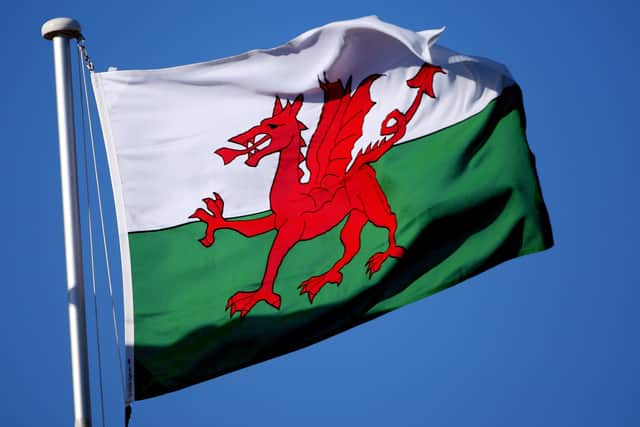St David’s Day 2023: how to say ‘Happy Saint David’s Day’ in Welsh - and pronounce ‘Dydd Gwyl Dewi Hapus’
and live on Freeview channel 276
St David was recognised as a national patron saint in the 12th century, during a time of Welsh resistance to the Normans.
Also known as the Feast of Saint David, it’s a day to celebrate the patron saint’s life. In Wales, it is known as one of the most colourful days of the year, and is a day filled with eisteddfodau (festivals of music, language and culture), in the form of parades and concerts.
Advertisement
Hide AdAdvertisement
Hide AdSo when is St David’s Day, and how is it celebrated in Wales? Here’s what you need to know.
When is St David’s Day?
St David’s Day is an annual event falling on the 1 March every year which is the date of St David’s death in 598 AD.
The day, also known as Feast of Saint David, commemorates the Welsh patron saint since its canonisation of David in the 12th Century by Pope Callixtus II.


Who was Saint David?
Saint David was born in Caerfai in southwest Wales into an aristocratic family. His exact birthdate is unknown but is said to range between 462 to 512.
Advertisement
Hide AdAdvertisement
Hide AdIt is traditionally believed that he is the son of Saint Non and the grandson of Ceredig ap Cunedda, a King of Ceredigion.
Reportedly, St David founded the Celtic monastic community on the western headland of Pembrokeshire, where St David’s Cathedral stands today.
St David’s fame as a teacher and his lifestyle spread among Celtic Christians and led to him founding 12 monasteries. In religious imagery, he is depicted with a white dove on his shoulder.
One of his foundations, at Glyn Rhosyn, became an important Christian shrine and soon one of the most important places in Wales.
Advertisement
Hide AdAdvertisement
Hide AdSt David reportedly died at the age of 100 on March 1 589 and is buried at his Cathedral in St Davids, Wales.
After St David’s death, his influence spread throughout the nation which led to his canonisation, leading to the title of the patron saint of Wales.
The process to declare a saint starts at least five years after someone’s death, so their life can be viewed objectively to see if they deserve to be bestowed with the title.
What are the traditions around St David’s Day?
Throughout Wales, Saint David is commemorated in parades that proceed throughout the city. Although this happens nationally, the largest occurs in Cardiff.
Advertisement
Hide AdAdvertisement
Hide AdSaint David’s Day is not a public holiday unlike Saint Patrick’s day in Ireland, although there is support for it becoming a Welsh bank holiday.
However, on 1 March, children partake in school concerts or eisteddfodau - a series of ranked competitions and some schoolchildren are given a half-day.
Sometimes school girls wear traditional Welsh costumes to school.
On St David’s Day, many people wear the national symbols of the daffodil or the leek, the latter being Saint David’s personal symbol.
Advertisement
Hide AdAdvertisement
Hide AdIt is said that St David, during battle with the Saxons, advised his soldiers to wear leeks in their hats so they could be easily distinguished from their enemies.
However, other sources say that Welsh archers fought bravely in a field of leeks during a battle with the French in 1346, where the Welsh began to wear leeks in their caps to mark St David’s Day.
Other traditions include the flag of Saint David flying throughout the enations and popular traditional Welsh dishes such as cawl (a soup) bara brith tea loaves, Welsh Cakes, Welsh lamb and Welsh rarebits are also eaten.
How to say Happy St David’s Day in Welsh
In Welsh, Happy St David’s Day is pronounced as “Dydd Gŵyl Dewi Hapus”.
It is pronounced as “Deethe goo-eel Dew-ww happ-iss” with the ‘the’ in dydd pronounced like “the”.
In Welsh, St David translates as Dewi Sant.
Comment Guidelines
National World encourages reader discussion on our stories. User feedback, insights and back-and-forth exchanges add a rich layer of context to reporting. Please review our Community Guidelines before commenting.
